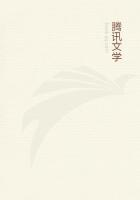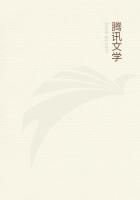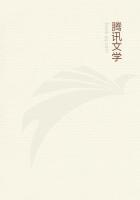Is not the only ruler of the Gods A complete tyrant, violent to all, Respecting none? First, being himself a God, He burneth to enjoy a mortal maid, And then torments her with these wanderings.
A sorry suitor for thy love, poor girl, A bitter wooing. Yet having heard so much Thou art not even in the overture And prelude of the song.
IO
Alas! Oh! Oh!
PROMETHEUS
Thou dost cryout, fetching again deep groans:
What wilt thou do when thou hast heard in full The evils yet to come?
CHORUS
And wilt thou tell The maiden something further: some fresh sorrow?
PROMETHEUS
A stormy sea of wrong and ruining.
IO
What does it profit me to live! Oh, why Do I not throw myself from this rough crag And in one leap rid me of all my pain?
Better to die at once than live, and all My days be evil.
PROMETHEUS
Thou would'st find it hard To bear what I must bear: for unto me It is not given to die,-a dear release From pain; but now of suffering there is No end in sight till Zeus shall fall.
IO
And shall Zeus fall? His power be taken from him?
No matter when if true-
PROMETHEUS
'Twould make thee happy Methinks, if thou could'st see calamity Whelm him.
IO
How should it not when all my woes Are of his sending? learn how These things shall be.
The tyrant's rod?
And fond imaginings.
IO
But how? Oh, speak, If the declaring draw no evil down IPROMETHEUS
A marriage he shall make shall vex him sore.
IO
A marriage? Whether of gods or mortals?
Speak!
If this be utterable!
PROMETHEUS
Why dost thou ask What I may not declare?
IO
And shall he quit The throne of all the worlds, by a new spouse Supplanted?
PROMETHEUS
She will bear to him a child, And he shall be in might more excellent Than his progenitor.
IO
And he will find No way to parry this strong stroke of fate?
PROMETHEUS
None save my own self-when these bonds are loosed.
IO
And who shall loose them if Zeus wills not?
Of thine own seed.
How say'st thou? Shall a child Of mine release thee?
PROMETHEUS
Son of thine, but son The thirteenth generation shall beget.
IO
A prophecy oracularly dark.
PROMETHEUS
Then seek not thou to know thine own fate.
IO
Nay, Tender me not a boon to snatch it from me.
PROMETHEUS
Of two gifts thou hast asked one shall be thine.
IO
What gifts? Pronounce and leave to me the choice.
PROMETHEUS
Nay, thou are free to choose. Say, therefore, whether I shall declare to thee thy future woes Or him who shall be my deliverer.
CHORUS
Nay, but let both be granted! Unto her That which she chooseth, unto me my choice, That I, too, may have honour from thy lips.
First unto her declare her wanderings, And unto me him who shall set thee free;'Tis that I long to know.
PROMETHEUS
I will resist No further, but to your importunacy All things which ye-desire to learn reveal.
And, Io, first to thee I will declare Thy far-driven wanderings; write thou my words In the retentive tablets of thy heart.
When thou hast crossed the flood that flows between And is the boundary of two continents, Turn to the sun's uprising, where he treads Printing with fiery steps the eastern sky, And from the roaring of the Pontic surge Do thou pass on, until before thee lies The Gorgonean plain, Kisthene called, Where dwell the gray-haired three, the Phorcides, Old, mumbling maids, swan-shaped, having one eye Betwixt the three, and but a single tooth.
On them the sun with his brightbeams ne'er glanceth Nor moon that lamps the night. Not far from them The sisters three, the Gorgons, have their haunt;Winged forms, with snaky locks, hateful to man, Whom nothing mortal looking on can live.
Thus much that thou may'st have a care of these.
Now of another portent thou shalt hear.
Beware the dogs of Zeus that ne'er give tongue, The sharp-beaked gryphons, and the one-eyed horde Of Arimaspians, riding upon horses, Who dwell around the river rolling gold, The ferry and the frith of Pluto's port.
Go not thou nigh them. After thou shalt come To a far land, a dark-skinned race, that dwell Beside the fountains of the sun, whence flows The river Ethiops: follow its banks Until thou comest to the steep-down slope Where from the Bibline mountains Nilus old Pours the sweet waters of his holy stream.
And thou, the river guiding thee, shalt come To the three-sided, wedge-shaped land of Nile, Where for thyself, Io, and for thy children Long sojourn is appointed. If in aught My story seems to stammer and to er From indirectness, ask and ask again Till all be manifest. I do not lack For leisure, having more than well contents me CHORUSIf there be aught that she must suffer yet, Or aught omitted in the narrative Of her long wanderings, I pray thee speak.
But if thou hast told all, then grant the boon We asked and doubtless thou wilt call to mind.
PROMETHEUS
Nay, she has heard the last of her long journey.
But, as some warrant for her patient hearing I will relate her former sufferings Ere she came hither. Much I will omit That had detained us else with long discourse And touch at once her journey's thus far goal.
When thou wast come to the Molossian plain That lies about the high top of Dodona, Where is an oracle and shrine of Zeus Thesprotian, and-portent past belief-The talking oaks, the same from whom the word Flashed clear and nothing questionably hailed the The destined spouse-ah! do I touch old wounds?-Of Zeus, honoured above thy ***; stung thence In torment, where the road runs by the sea, Thou cam'st to the broad gulf of Rhea, whence Beat back by a strong wind, thou didst retrace Most painfully thy course; and it shall be That times to come in memory of thy passage Shall call that inlet the Ionian Sea.
Thus much for thee in witness that my mind Beholdeth more than that which leaps to light.
Now for the things to come; what I shall say Concerns ye both alike. Return we then And follow our old track. There is a city Yclept Canobus, built at the land's end, Even at the mouth and mounded silt of Nile, And there shall Zeus restore to thee thy mind With touch benign and laying on of hands.















